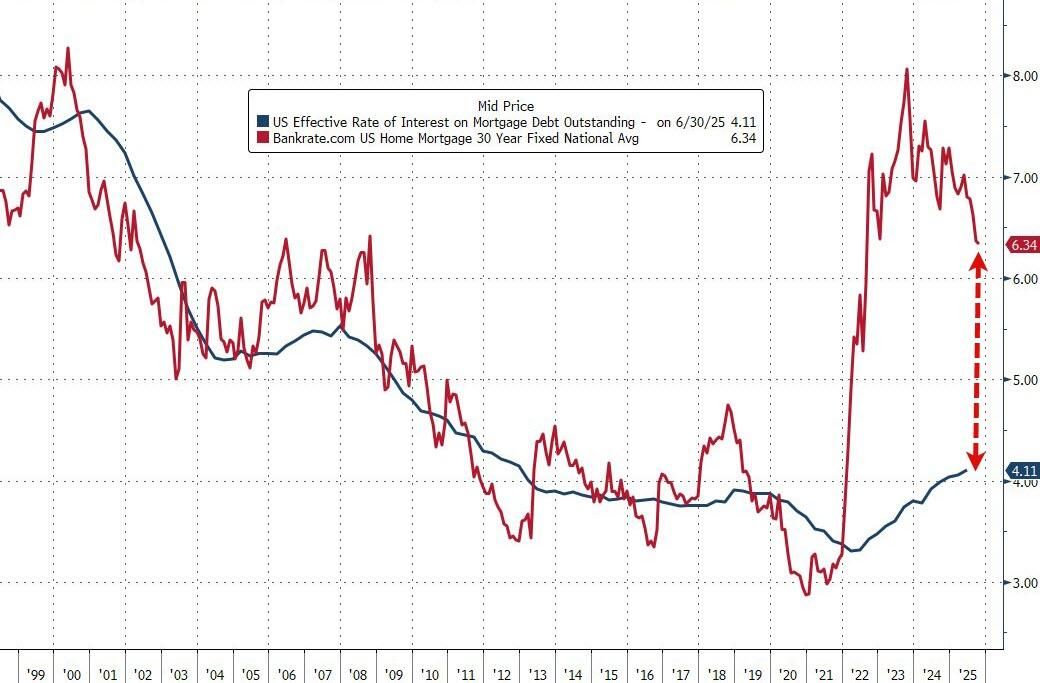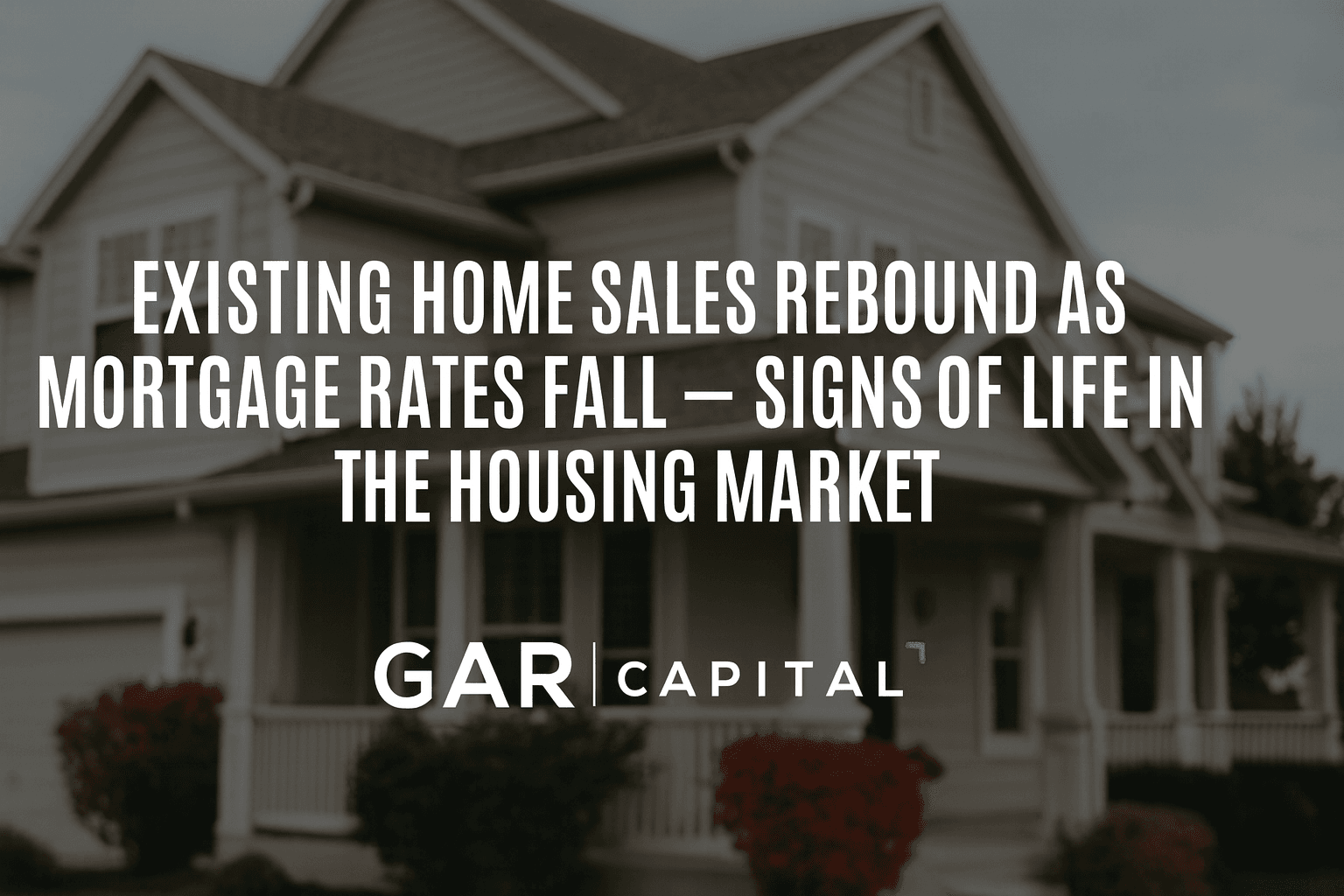Summary
After a long stretch of sluggish activity, U.S. existing home sales are finally turning higher as mortgage rates drop from last year’s highs. The average 30-year fixed rate has fallen to 6.34%, helping affordability improve slightly and bringing more first-time buyers back into the market. Prices remain elevated, with the median home at $415,200, but supply is also climbing — up 14% year-over-year. With two-thirds of major U.S. cities now leaning toward buyer’s markets, the housing landscape appears to be stabilizing heading into 2026.
Economic Data
- 📈 US CPI INFLATION DATA: Oct 24, 2025
- 📈 Flash Manufacturing PMI: Oct 24, 2025
📚 Deep Dive 📚
🏡 Existing Home Sales Finally Tick Higher as Mortgage Rates Drop
The U.S. housing market is finally showing some life again. After months of sluggish activity, existing home sales in September rose 1.5%, breaking a long streak of weakness and marking a 4.2% increase from the same time last year — the fastest pace since late 2024.

-Bloomberg
💡 Why This Matters
Mortgage rates have been falling, and that’s starting to make a difference. For months, buyers stayed on the sidelines as rates sat near 7–8%. But now that average 30-year fixed rates have dipped closer to 6.3%, confidence is slowly returning.
Economists say the latest drop in rates could boost sales even more in the coming months since most home purchases take 30–60 days to close after going under contract.
📉 The Big Gap
Even though mortgage rates have come down, they’re still much higher than the average existing homeowner’s rate — which sits around 4.1%.
That’s a big reason many current owners are hesitant to sell. Moving now would mean trading a low mortgage for a higher one, keeping supply tight.
📈 Home Prices Keep Rising
The median sales price for existing homes hit $415,200, up 2.1% from a year ago.
That continues a steady streak of price increases going back to mid-2023, with 2024 averaging well over 4% annual growth.
Despite higher prices, buyers are beginning to reappear as affordability slightly improves with falling rates.
🧱 Who’s Buying (and Selling)
- First-time buyers made up 30% of sales, up from 28% the month before — a sign that younger or new buyers are stepping back in.
- Investors and second-home buyers accounted for 15%, down from 21% a month earlier. Analysts say this drop could reflect expectations for lower rental prices ahead.
- The total number of homes on the market jumped 14% year-over-year to 1.55 million, one of the highest levels since before the pandemic.
🏠 A Shift Toward a Buyer’s Market
Two-thirds of America’s largest metro areas are now buyer’s markets, meaning there are more sellers than buyers — at least by 10% or more.
That’s according to new data from Redfin, and it suggests the balance of power is slowly shifting.
📊 Bottom Line
Falling mortgage rates are starting to unlock the housing market again — but it’s happening gradually.
While prices remain high and inventory is still below historical averages, more supply and lower borrowing costs could finally bring some relief for frustrated buyers heading into 2026.


